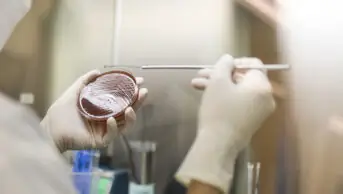
Shutterstock.com
Senior academics have written an open letter to prime minister Rishi Sunak, expressing concern about the possibility of “extremely serious unintended consequences” of the new ‘Pharmacy First’ scheme in England.
The authors, who include microbiologists, epidemiologists, infectious disease experts and the co-directors of the Antimicrobial Resistance Centre at the London School of Hygiene and Tropical Medicine, warned of a danger of excessive antibiotic provision under the proposed scheme, which was announced earlier in May 2023.
In the letter to Sunak, published in The Telegraph on 17 May 2023, the signatories, who include Jonathan Cooke, honorary professor of pharmacy at the University of Manchester, wrote: “We applaud the government’s initiative of empowering community pharmacists to prescribe medicines for some common illnesses in order to reduce GP workload, cut waiting lists and alleviate the pressure on the NHS.
“However, we strongly caution the government that unless it is implemented with due consideration given to antibiotic resistance, such an initiative could lead to unintended consequences that would reverse the gains it makes.
“Failing to stem the tide of antibiotic resistance also jeopardises the safety of procedures we rely on in modern medicine including transplantation, chemotherapy, and even child delivery.”
The authors called for the widespread introduction of rapid diagnostic tests, which they said “combined with patient symptoms will lead to better prescription decisions”.
“The use of rapid diagnostic tests has become the new normal during COVID-19, and we have a timely opportunity to capitalise on this by expanding their use in the context of other infections,” they wrote.
They further underlined to Sunak that, of the seven conditions covered by the pharmacy scheme, three — ear infections, sinusitis and sore throats — can be caused by both bacteria and viruses, saying that antibiotics are ineffective in the case of viral infections.
“Ultimately, there is no silver bullet for addressing the overload on the NHS. Pharmacists would be far better supported in taking on the responsibility of prescribing medicines for these conditions by specific rapid diagnostic tests and appropriate training in their use. This will require upfront investment and may not yield immediate results,” they said.
“However, implementing the initiative whilst accounting for antibiotic resistance gives it the best chance of avoiding extremely serious unintended consequences and simultaneously provides an opportunity to strengthen the UK’s healthcare innovation ecosystem as well as the NHS.”
In February 2022, NHS England paused sign-ups for a locally-commissioned minor ailments service in the Midlands, after it said it had commissioned a review of the safety and effectiveness of community pharmacy services where antibiotics are supplied without a prescription
And, in April 2023, the National Institute for Health and Care Research published a “pre-call” announcement, in which it said it was looking to commission research designed to evaluate a ‘Pharmacy First’ service, particularly “considering [its] implications for antimicrobial resistance”.
4 comments
You must be logged in to post a comment.



Perhaps the same authors would like to comment on remote prescribing via GP practice ?
Wouldn’t it be nice if the various commentators and academics would consider that pharmacists actually have far more training on AMR and its consequences than any of the other prescribing professions? If you consider how many extra hours of pharmacology the average pharmacist graduate has studied it’s actually an insult to suggest otherwise. Allowing pharmacists to advise on clinically appropriate use of antibiotics is surely the safest way forward.
I also have reservations about this initiative. It will allow people to obtain antibiotics more easily which will encourage people to present earlier than waiting for a GP appointment.
Patients do not always tell the truth about the length of time they have had a condition and they can access pharmacies easily.
Perhaps target other initiatives for community pharmacy that don't involve antibiotics.
We need fewer prescribers of this group, not more
So what you imply is that pharmacists are not capable of making clinically appropriate, professional decisions about peoples presenting symptoms. Nor will they be able to follow appropriate NICE guidelines on treatment protocols? I am offended if that is what you mean.